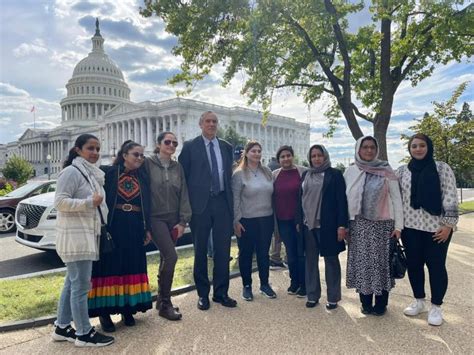Military
Afghan Adjustment Act Explained

Introduction to the Afghan Adjustment Act

The Afghan Adjustment Act is a proposed legislation aimed at providing a pathway to permanent residency for certain Afghan nationals who have been evacuated to the United States. This act is designed to address the plight of thousands of Afghans who were relocated to the US following the Taliban’s takeover of Afghanistan in 2021. The proposed legislation has garnered significant attention and support from various stakeholders, including lawmakers, refugee advocacy groups, and the general public. In this article, we will delve into the details of the Afghan Adjustment Act, its key provisions, and the potential implications for Afghan evacuees.
Background and Context

The situation in Afghanistan has been dire since the Taliban’s return to power, with widespread human rights abuses, persecution of minority groups, and a severe humanitarian crisis. The US government, in response to the crisis, launched a large-scale evacuation effort, dubbed “Operation Allies Refuge,” which aimed to relocate at-risk Afghans, including interpreters, translators, and other individuals who had worked with the US military or government. However, many of these evacuees were brought to the US under temporary humanitarian parole, which does not provide a direct pathway to permanent residency or citizenship.
Key Provisions of the Afghan Adjustment Act

The Afghan Adjustment Act seeks to address the uncertainty and vulnerability faced by Afghan evacuees by providing a pathway to permanent residency. The proposed legislation includes the following key provisions: * Eligibility criteria: The act would make certain Afghan nationals eligible for adjustment of status to permanent resident, including those who were evacuated to the US under humanitarian parole, as well as their spouses, children, and other qualifying family members. * Security screening: The legislation would require Afghan evacuees to undergo thorough security screening, including background checks and biometric data collection, to ensure that they do not pose a national security risk. * Integration and support: The act would provide funding for integration and support services, including language training, cultural orientation, and job placement assistance, to help Afghan evacuees settle and integrate into American society. * Pathway to citizenship: The legislation would provide a pathway to citizenship for Afghan evacuees who have been granted permanent residency, allowing them to apply for naturalization after meeting the requisite eligibility requirements.
Benefits and Implications

The Afghan Adjustment Act, if passed, would have significant benefits and implications for Afghan evacuees, including: * Stability and security: The act would provide a sense of stability and security for Afghan evacuees, who would no longer face the uncertainty and vulnerability associated with temporary humanitarian parole. * Integration and inclusion: The legislation would facilitate the integration and inclusion of Afghan evacuees into American society, allowing them to contribute to their communities and pursue their goals and aspirations. * Economic benefits: The act would also have positive economic implications, as Afghan evacuees would be able to work, start businesses, and contribute to the US economy, generating tax revenue and creating jobs.
📝 Note: The Afghan Adjustment Act is still a proposed legislation, and its passage is subject to approval by Congress and the President.
Challenges and Controversies

While the Afghan Adjustment Act has garnered significant support, it also faces challenges and controversies, including: * Security concerns: Some lawmakers and stakeholders have raised concerns about the security risks associated with allowing Afghan evacuees to remain in the US, citing the potential for terrorist infiltration or other security threats. * Immigration policies: The act has also sparked debates about US immigration policies, with some arguing that it would create a precedent for other groups or individuals to seek similar treatment. * Resource allocation: The legislation would require significant resources, including funding for security screening, integration services, and other support programs, which could be a challenge in a resource-constrained environment.
Conclusion and Future Directions

In conclusion, the Afghan Adjustment Act is a critical piece of legislation that seeks to address the plight of Afghan evacuees who have been relocated to the US. While it faces challenges and controversies, the act has the potential to provide a pathway to permanent residency and citizenship for thousands of Afghan nationals, allowing them to rebuild their lives and contribute to American society. As the legislation moves forward, it is essential to address the concerns and challenges associated with it, ensuring that the act is implemented in a way that balances national security, humanitarian, and economic considerations.
What is the Afghan Adjustment Act?

+
The Afghan Adjustment Act is a proposed legislation that seeks to provide a pathway to permanent residency for certain Afghan nationals who have been evacuated to the US.
Who is eligible for the Afghan Adjustment Act?

+
The act would make certain Afghan nationals eligible for adjustment of status to permanent resident, including those who were evacuated to the US under humanitarian parole, as well as their spouses, children, and other qualifying family members.
What are the benefits of the Afghan Adjustment Act?

+
The act would provide a sense of stability and security for Afghan evacuees, facilitate their integration and inclusion into American society, and have positive economic implications.



